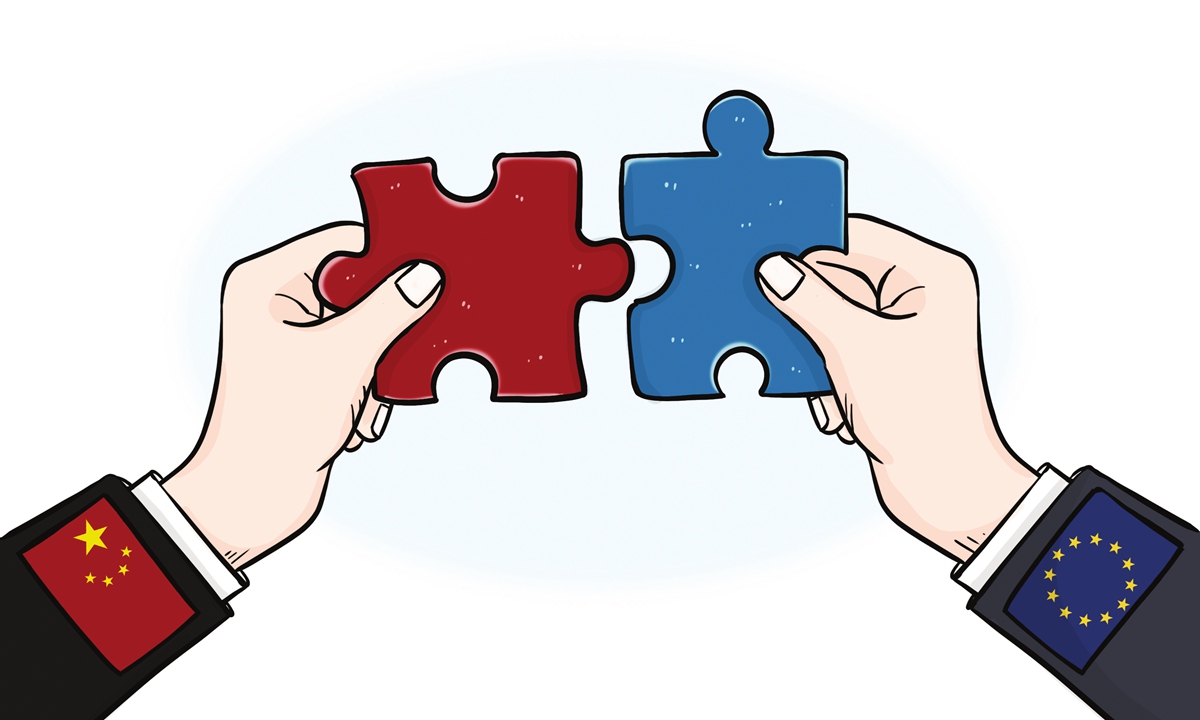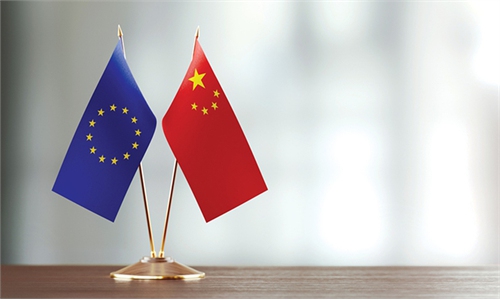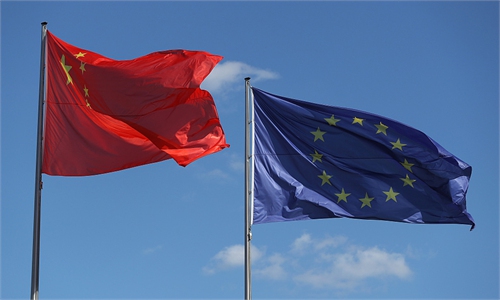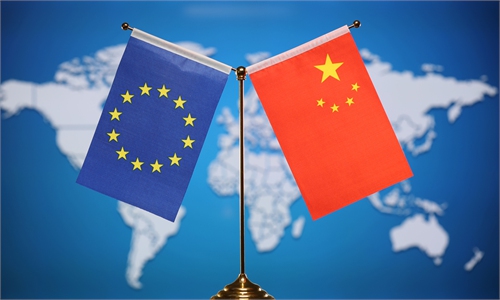China, EU can provide more certainties in turbulent world: Global Times editorial

China EU relations
The 23rd China-EU leaders summit was held on Friday via video link. President Xi Jinping met with President Charles Michel of the European Council and President Ursula von der Leyen of the European Commission. Premier Li Keqiang co-chaired the meeting with Michel and von der Leyen. This was the first formal meeting between the two sides' leaders since June 2020. Both sides agreed that this has been a candid and in-depth discussion in which the two sides increased mutual understanding and reached consensus in many areas. They agreed to step up communication and exchanges and keep up coordination and cooperation.
It is very important and valuable that China and the EU can have talks in the current international situation. Following the outbreak of the Ukraine crisis, the ghost of the Cold War that haunts Europe seems to be resurrected. Meanwhile, the maximum pressure campaign of the US is creating more divisions and confrontations, making it possible for the ghost of the Cold War to haunt more places around the world. As two powers that maintain world peace, two markets that promote common development, and two civilizations that drive human progress, China and the EU can bring greater hope and guarantee to world peace and stability with their talks and cooperation.
We noted that before the summit, some Western public opinion, especially American public opinion, deliberately played up the tensions and twists in China-EU relations and tried to hold these ties hostage by using the Ukraine issue. Undoubtedly, this is a carefully planned sequel to US intentions to use Ukraine to contain Russia and use Russia to contain Europe. As a matter of fact, China and the EU share a broad consensus on upholding multilateralism, strengthening global governance, tackling climate change and jointly fighting the pandemic. China has more than 70 consultation and dialogue mechanisms with EU institutions, covering almost everything and discussing nearly everything. It is a strategic narrowness to peep into and define China-EU relations through only specific areas.
Even on the Ukraine issue, China and the EU have many areas of consensus: The two sides are not willing to see chaos and war; they both hope to realize a ceasefire and stop the war as soon as possible; in terms of humanitarian assistance, there are no differences between the two. It should be noted that as the Ukraine issue drags on, it may lead to serious global economic, refugee, energy, food and financial crises. It's Europe that will bear the brunt. China is not directly involved in the Ukraine crisis, but sincerely hopes that Europe can achieve permanent peace. In the meantime, China believes that extreme sanctions will only lead to mutual harm, complicate the situation and intensify conflicts. Europe also knows this.
No two leaves of any plants are identical. It's not surprising that China and Europe have differences in some areas. What's more important is that there are neither fundamental geopolitical conflicts between the two, nor irreconcilable conflicts of interests. On the contrary, there is a driving force for bilateral cooperation. China's trade with the EU in 2021 amounted to $828.1 billion, up 27.5 percent year-on-year. China has been the EU's biggest trading partner for two consecutive years. In the first two months of this year, the EU overtook the ASEAN to become China's largest trading partner. The resilience and potential of China-Europe relations have been shown under difficult circumstances.
In addition, firmly safeguarding multilateralism, jointly dealing with the COVID-19 pandemic, cooperating to promote the outcome of the COP26 climate summit in Glasgow, protecting biodiversity and promoting the settlement of hot issues such as the Iran nuclear issue are all successful cases of China-EU cooperation in recent years. From the broad perspective of the human development process, China and the EU should not be systematic rivals, but all-round strategic partners.
The reason for emphasizing this is that we also see that the complexity of China-EU relations is also rising. Influenced by Washington's strategy toward China, some Europeans have enhanced their perception of China from the perspective of "cooperation, competition and rivalry," and even frequently interfered in China's internal affairs on issues related to Xinjiang, Hong Kong and Taiwan. The main reason for this complexity is Washington's political manipulation - Washington is neither willing to see reconciliation between Europe and Russia through talks, nor win-win cooperation between China and Europe, because it realizes its strategic interests through sacrificing the EU. In this regard, Europe urgently needs to clarify its interests, form an independent cognition, adhere to an independent policy, and should not easily fall into the quagmire of a "new cold war."
History often offers wisdom and enlightenment. From the very beginning, the development of China-Europe relations has been marked by breaking away from confrontation as witnessed between the different camps during the Cold War. From France, Italy and other countries taking the lead in breaking through the barriers of the Cold War and establishing diplomatic relations with China, to the establishment of diplomatic relations between China and the European Community (the predecessor institution of the EU) in 1975, these are all political decisions with great strategic vision made by Chinese and European leaders under the background of the Cold War and the confrontation between the US and the Soviet Union. So far, China and Europe and the whole world have benefited from the very visionary strategic decisions made by Chinese and European leaders. Today, the world has come to a new crossroads again, and mankind is once again faced with the key choices of progress or regression, unity or division, opening or isolation.
It is worth emphasizing that although the Ukraine crisis has disrupted the rhythm of many things, it has not changed the fundamental aspects of China-EU relations. The more complicated and turbulent the era facing China and Europe, the more they should insist on viewing each other from a strategic perspective, and the more they should adhere to independence, objectivity and rationality to promote the steady and long-term development of China-EU relations. It is the call of the times and the responsibility of history.



